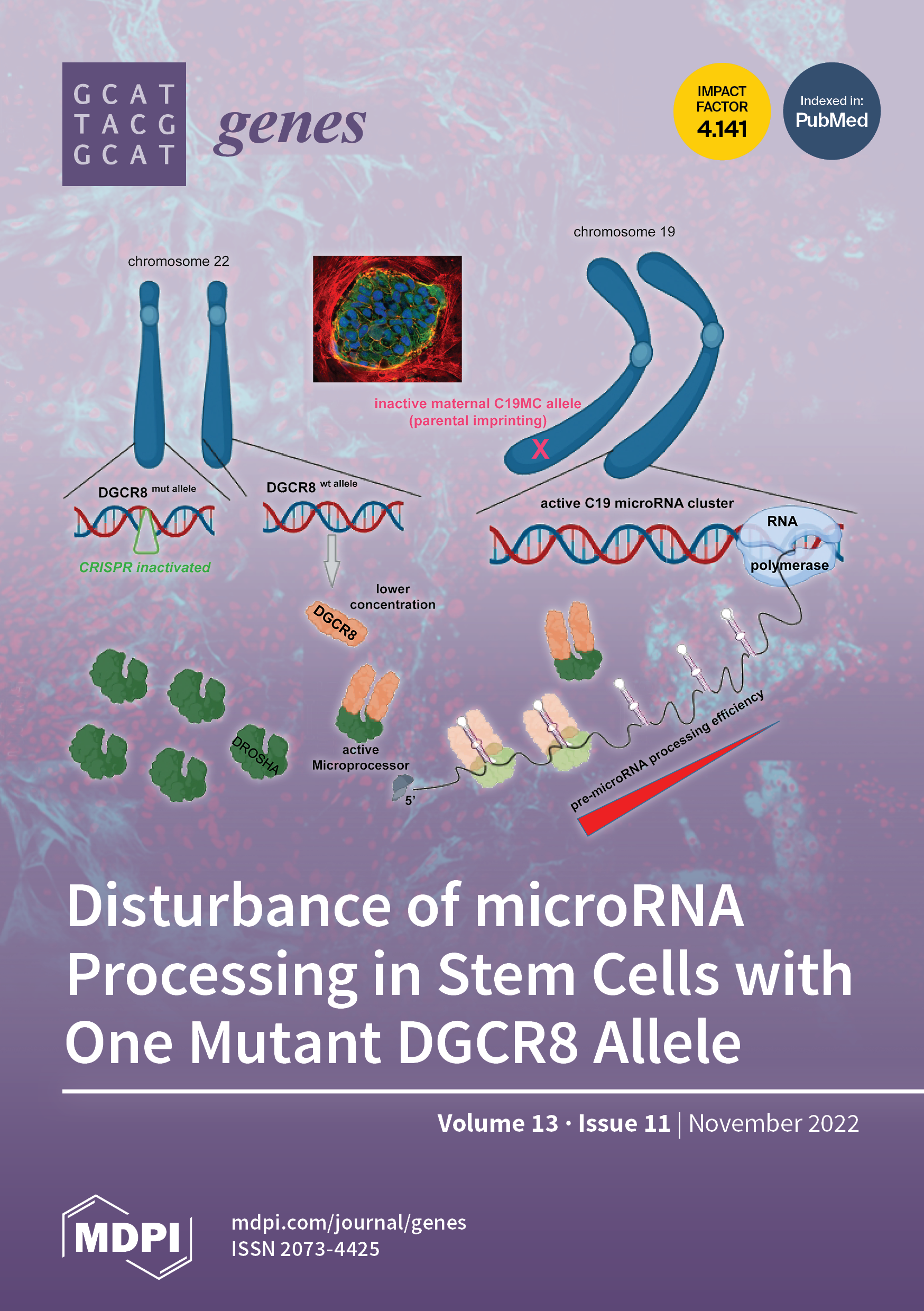Two laboratories, lead by Ágota Apáti and Tamás Orbán, published a paper in the 2022 November issue of GENES and the corresponding illustration on the joint collaborative study was also selected for the cover page of that issue. The summary of the results is as follows:
Maturation of microRNAs begins by the “Microprocessor” complex, containing the Drosha endonuclease and its partner protein, DGCR8. To investigate the roles of DGCR8 in this and other cellular pathways, we established a human embryonic stem-cell line carrying a monoallelic DGCR8 mutation by the CRISPR-Cas9 system. This mutation results in only a modest effect on the DGCR8 mRNA level but a significant decrease at the protein level. Self-renewal and trilineage differentiation capacity of stem cells are not affected but partial disturbance of the Microprocessor function could be revealed in pri-miRNA processing along the chromosome 19 miRNA cluster. The study demonstrates that such a mutant stem cell line is a good model to investigate not only miRNA-related but also other “noncanonical” functions of the DGCR8 protein, as well as the ”DiGeorge syndrome”, a human disease with one mutant chromosomal region containing the DGCR8 gene.
Reference:


